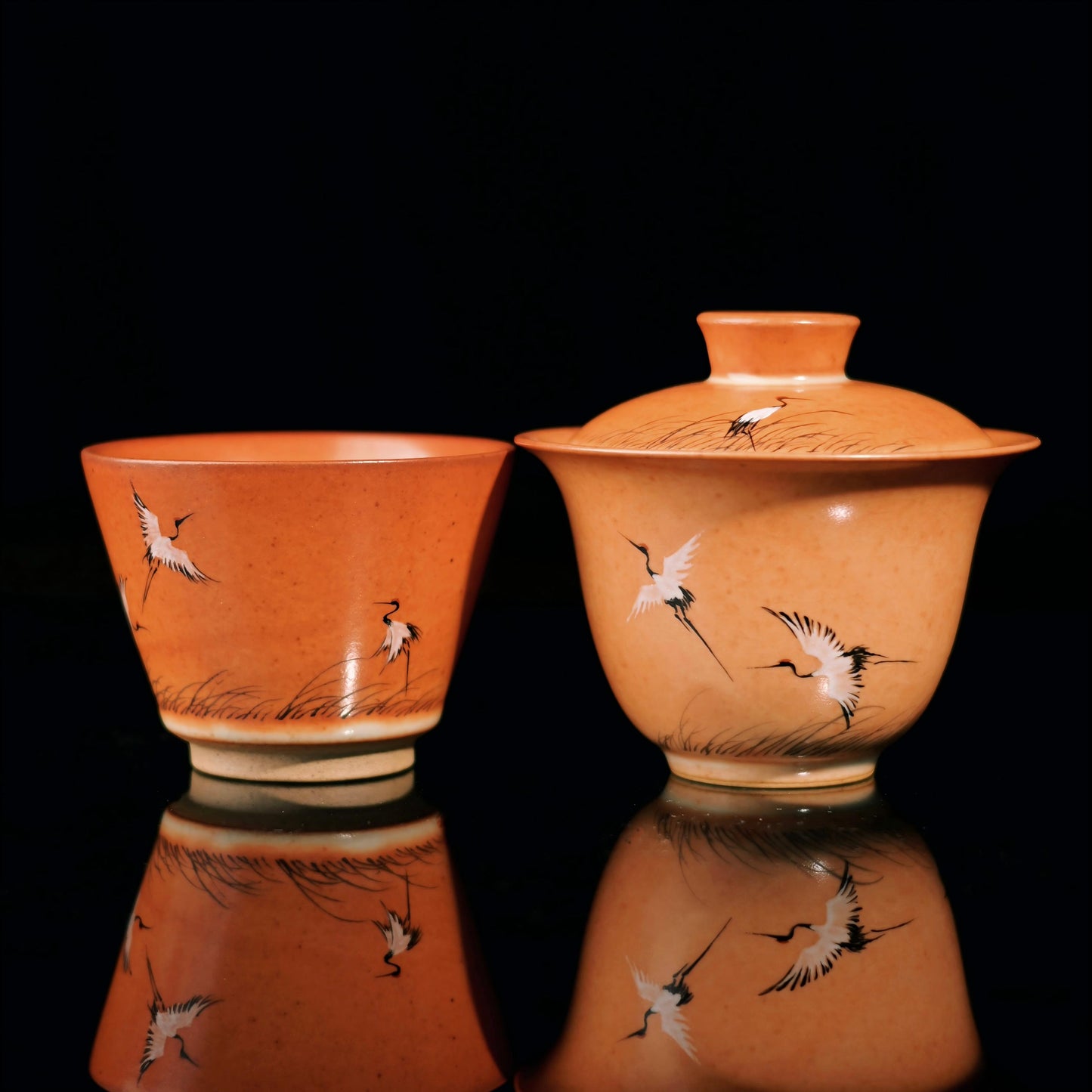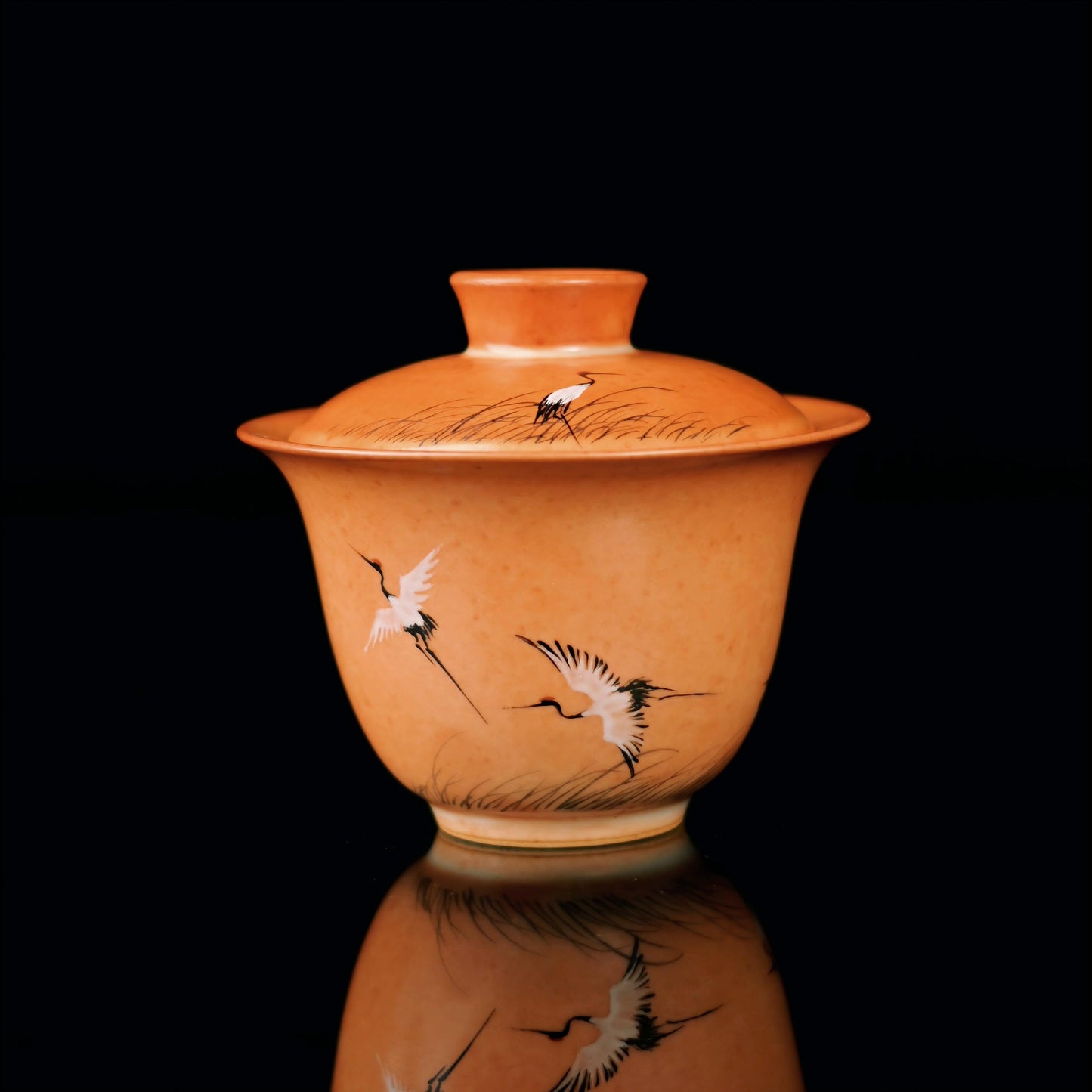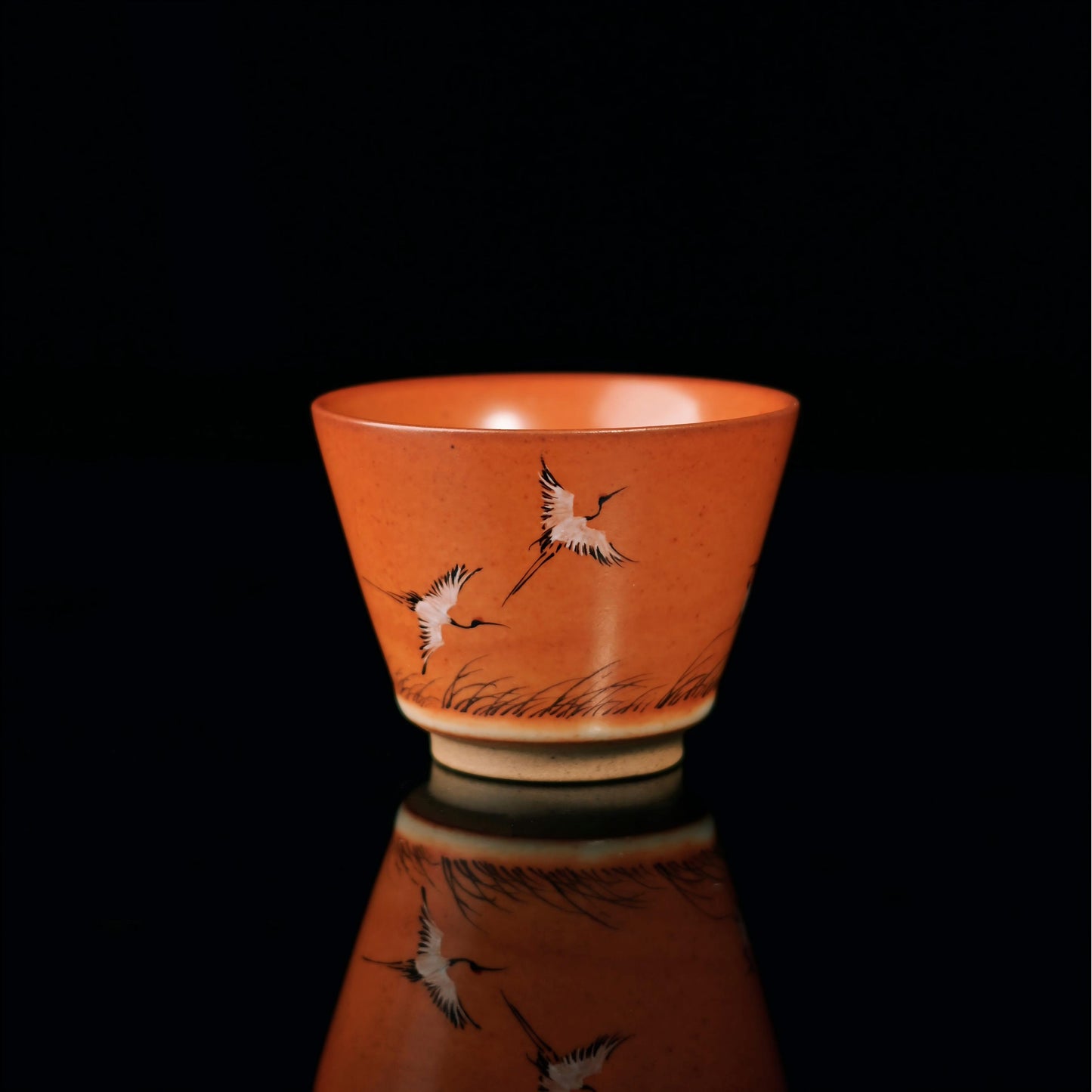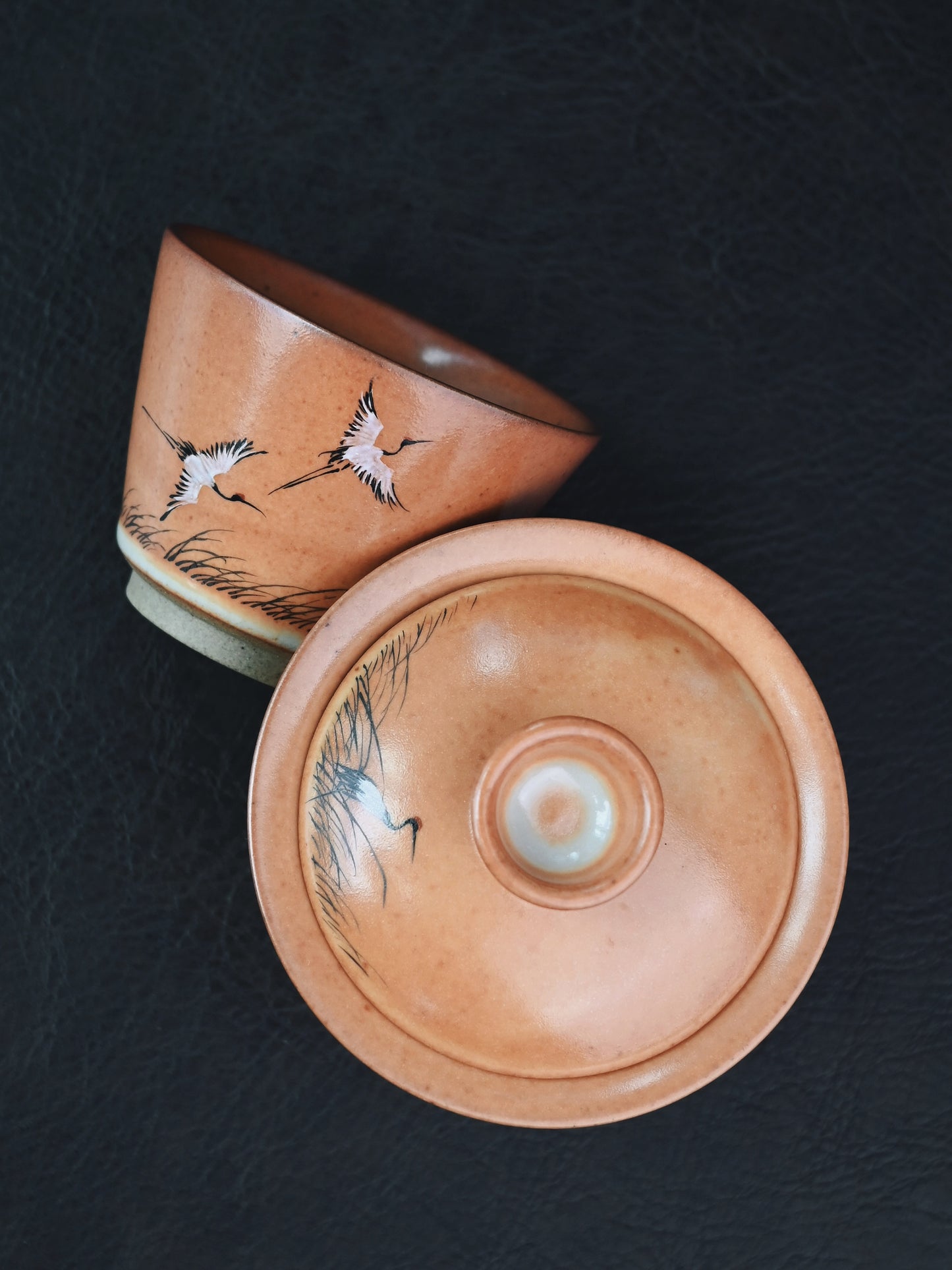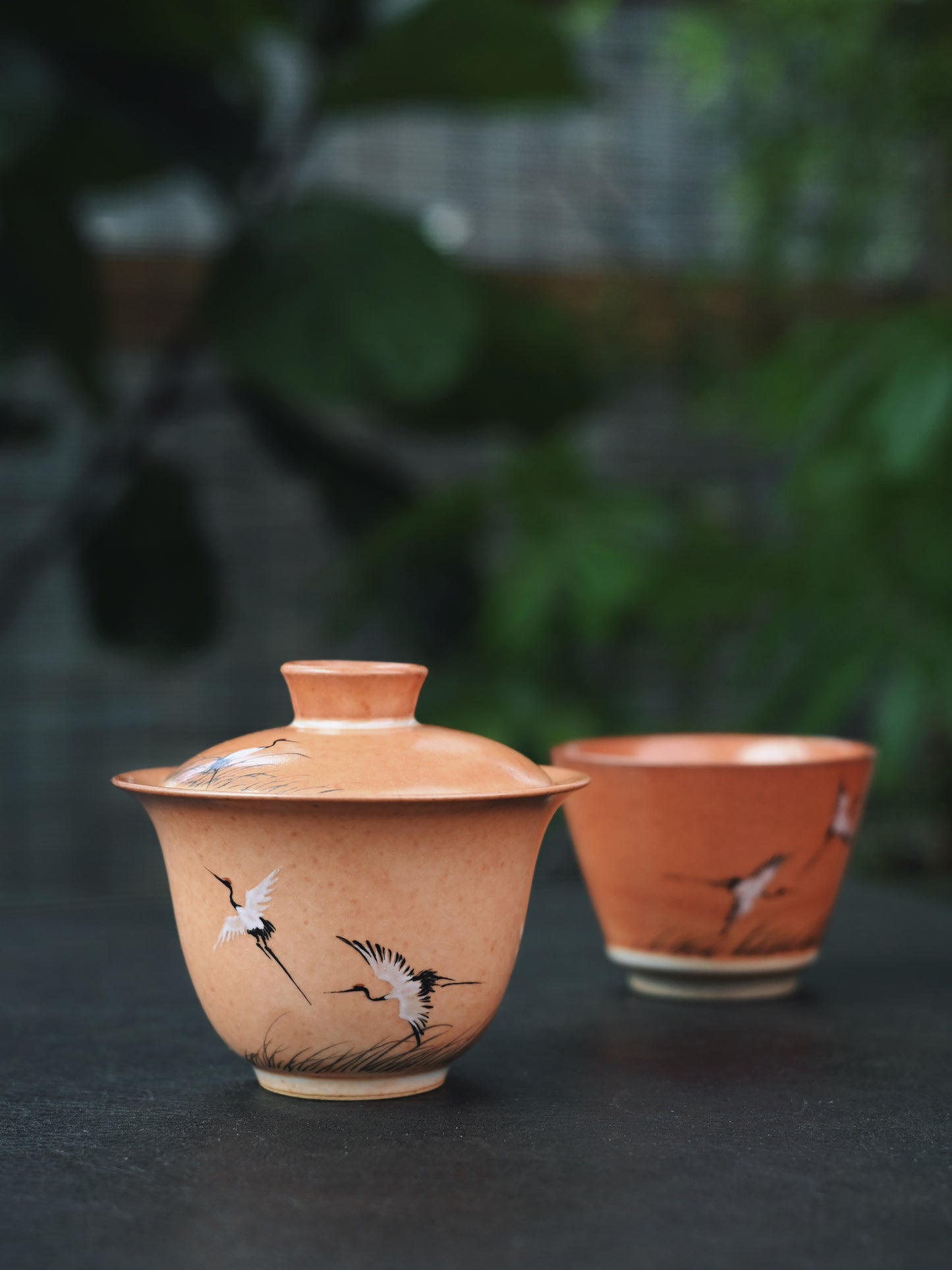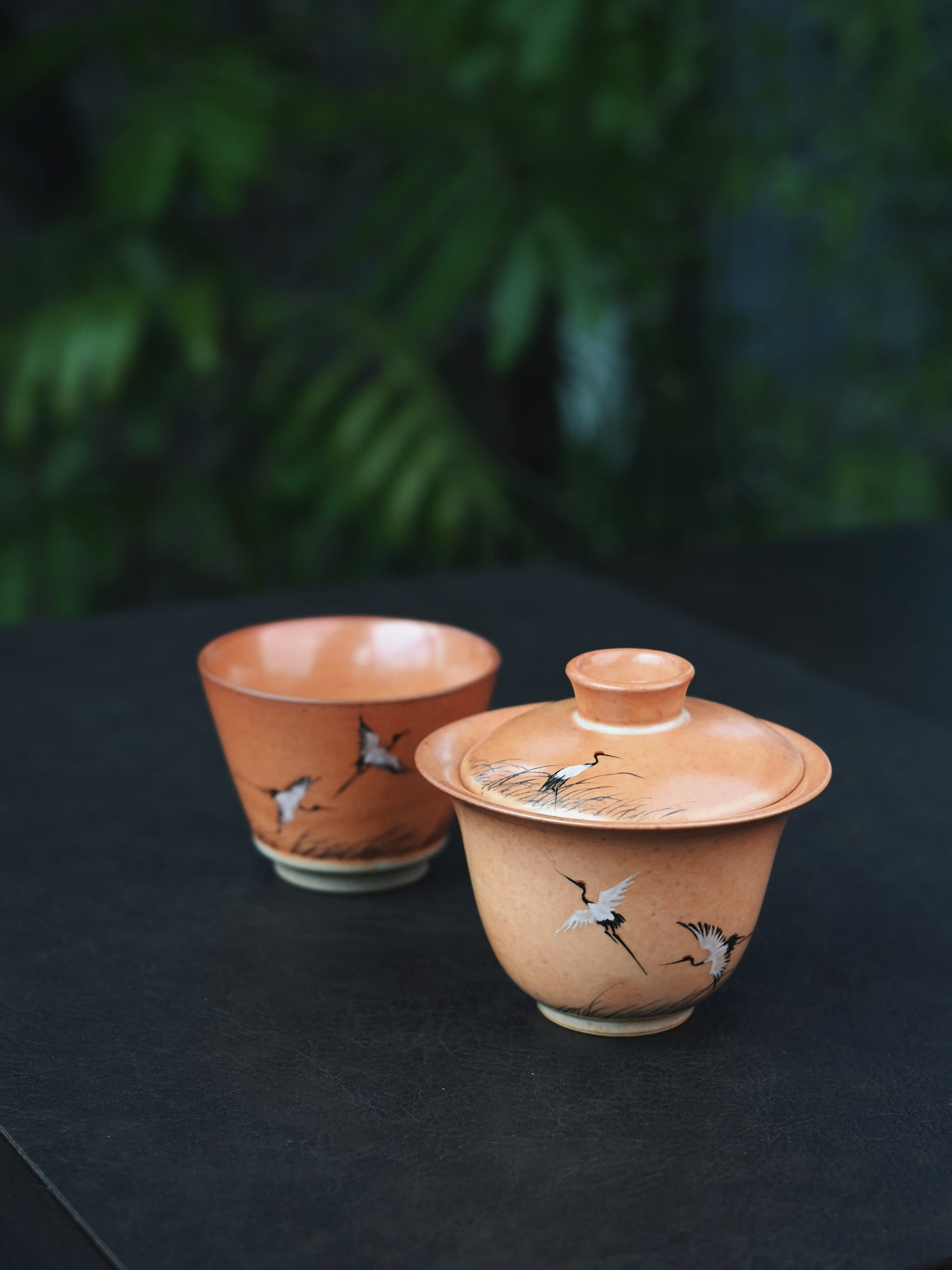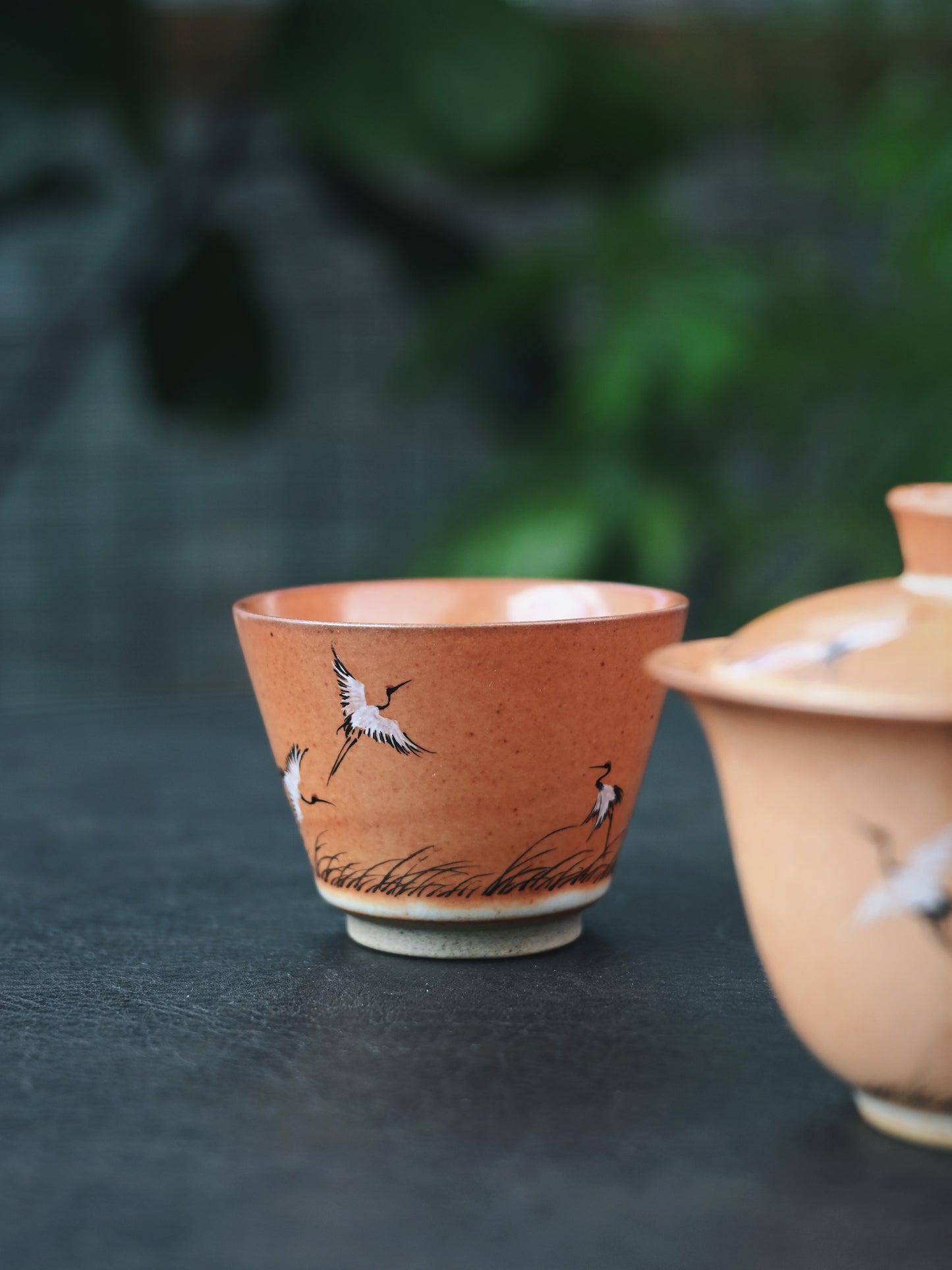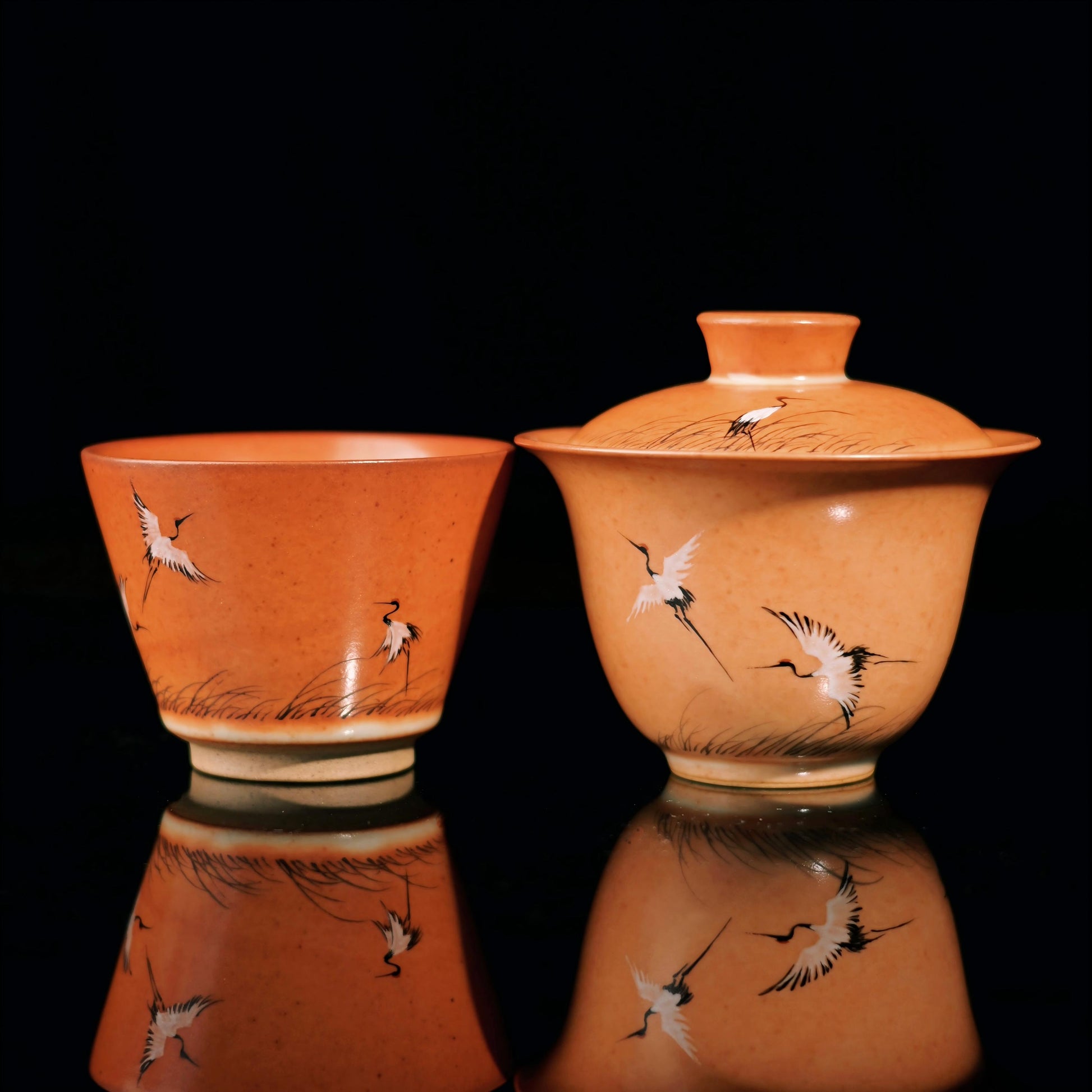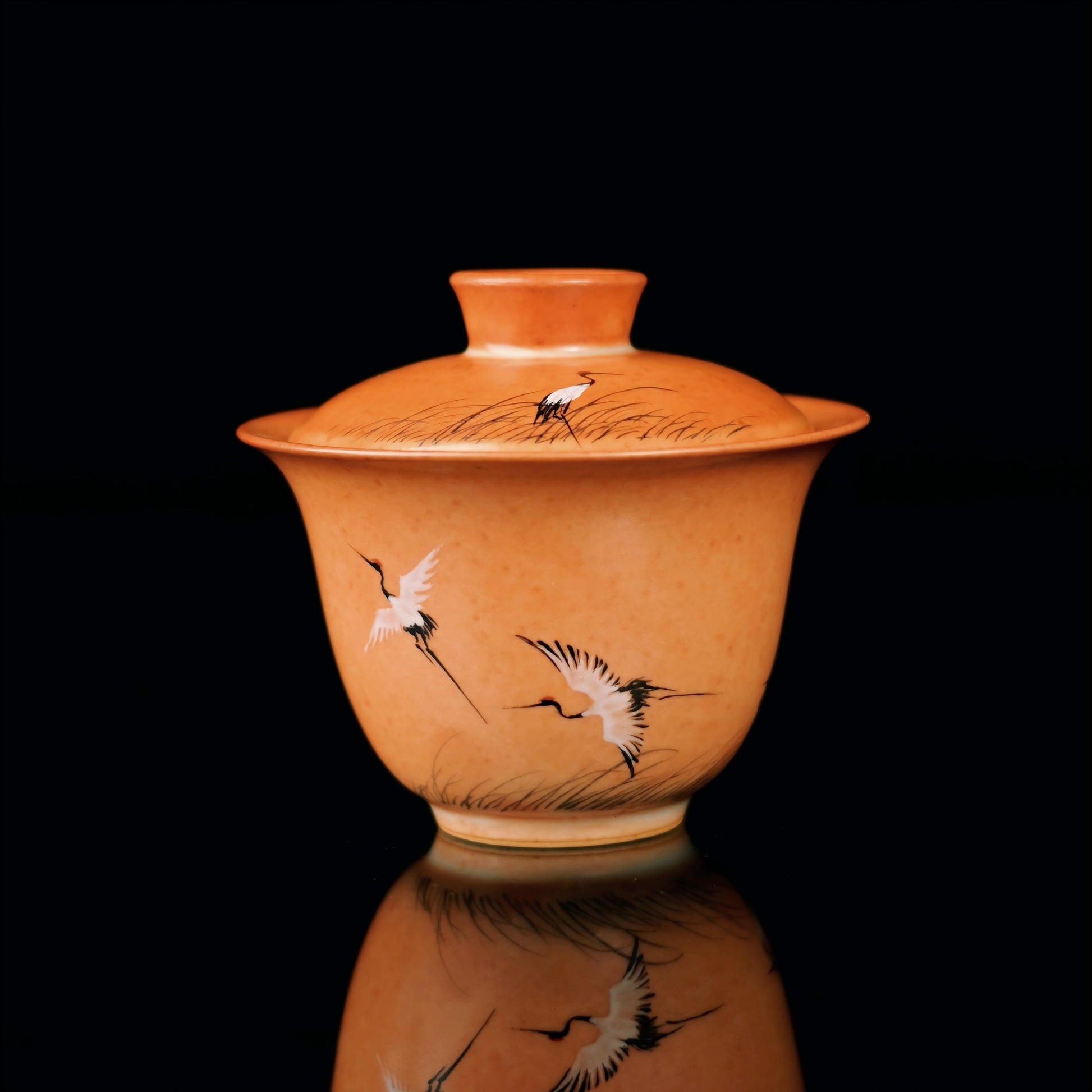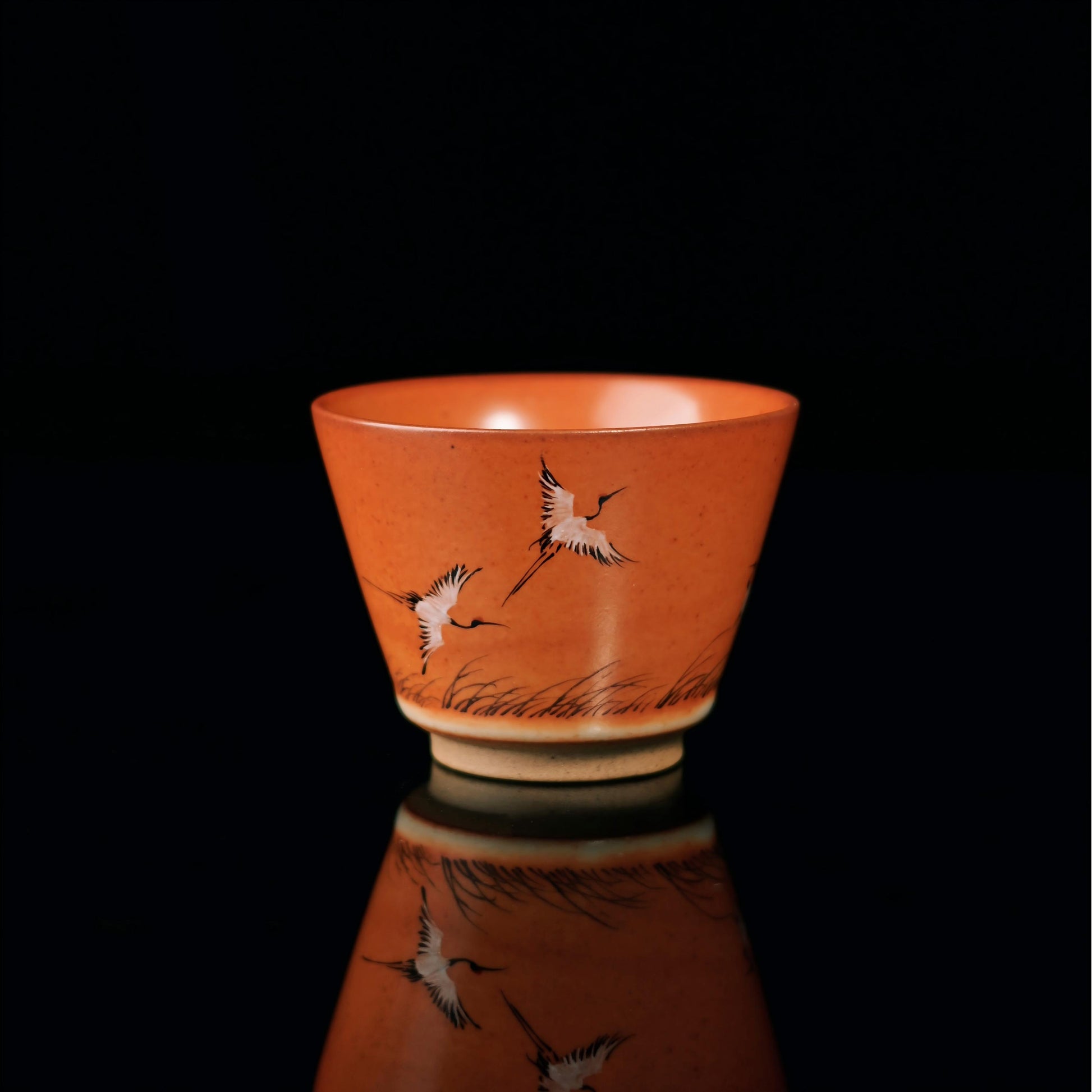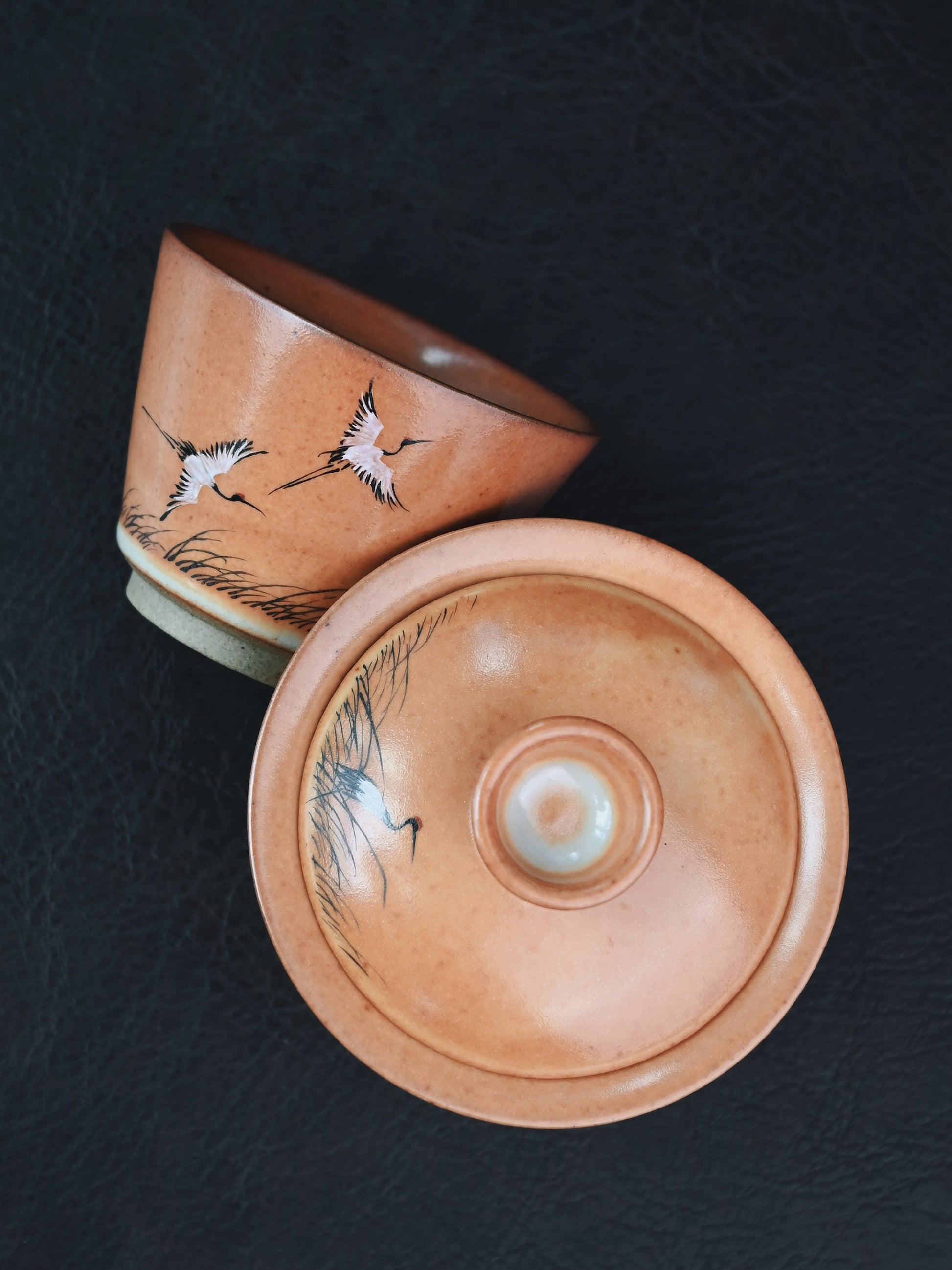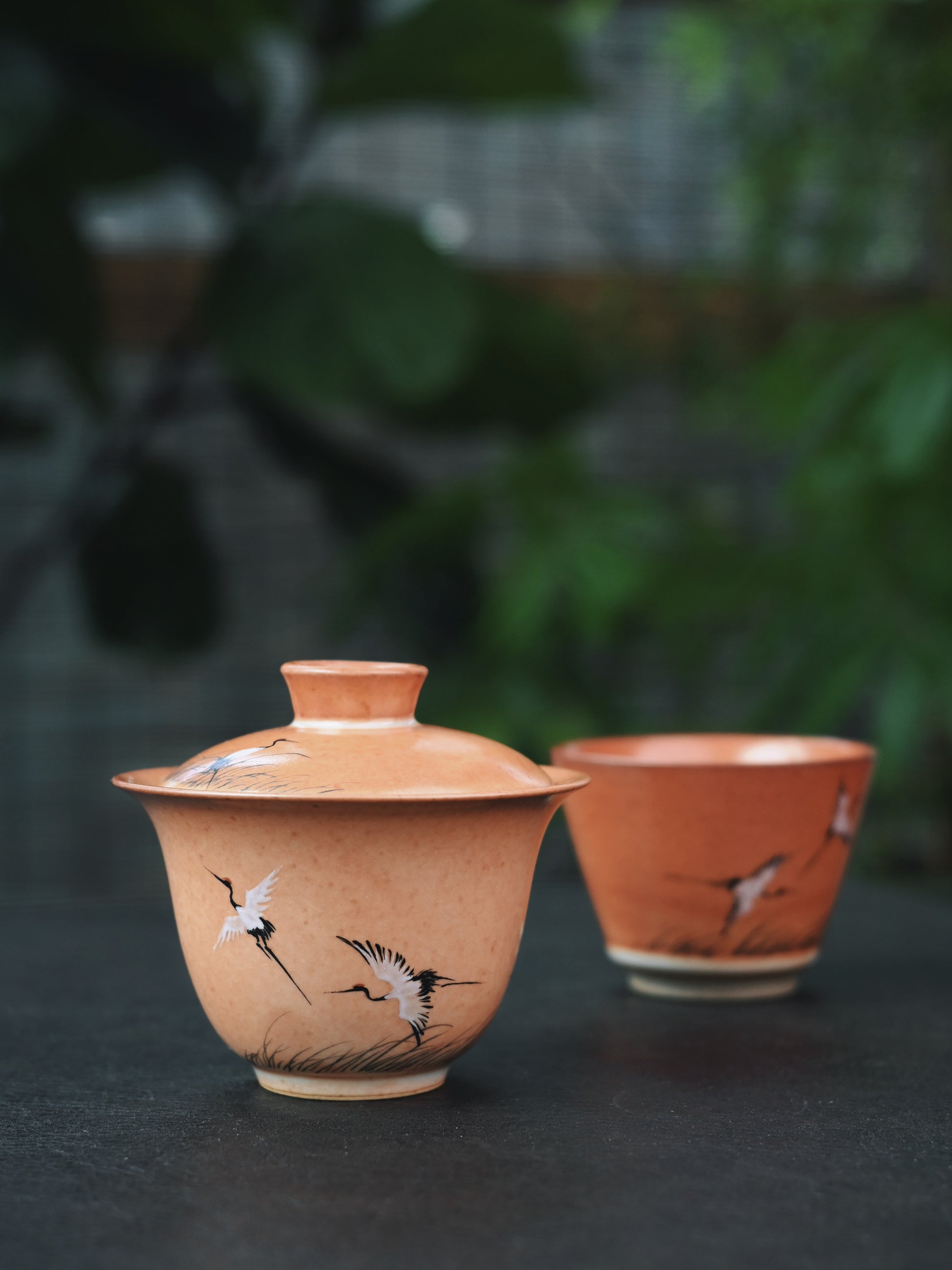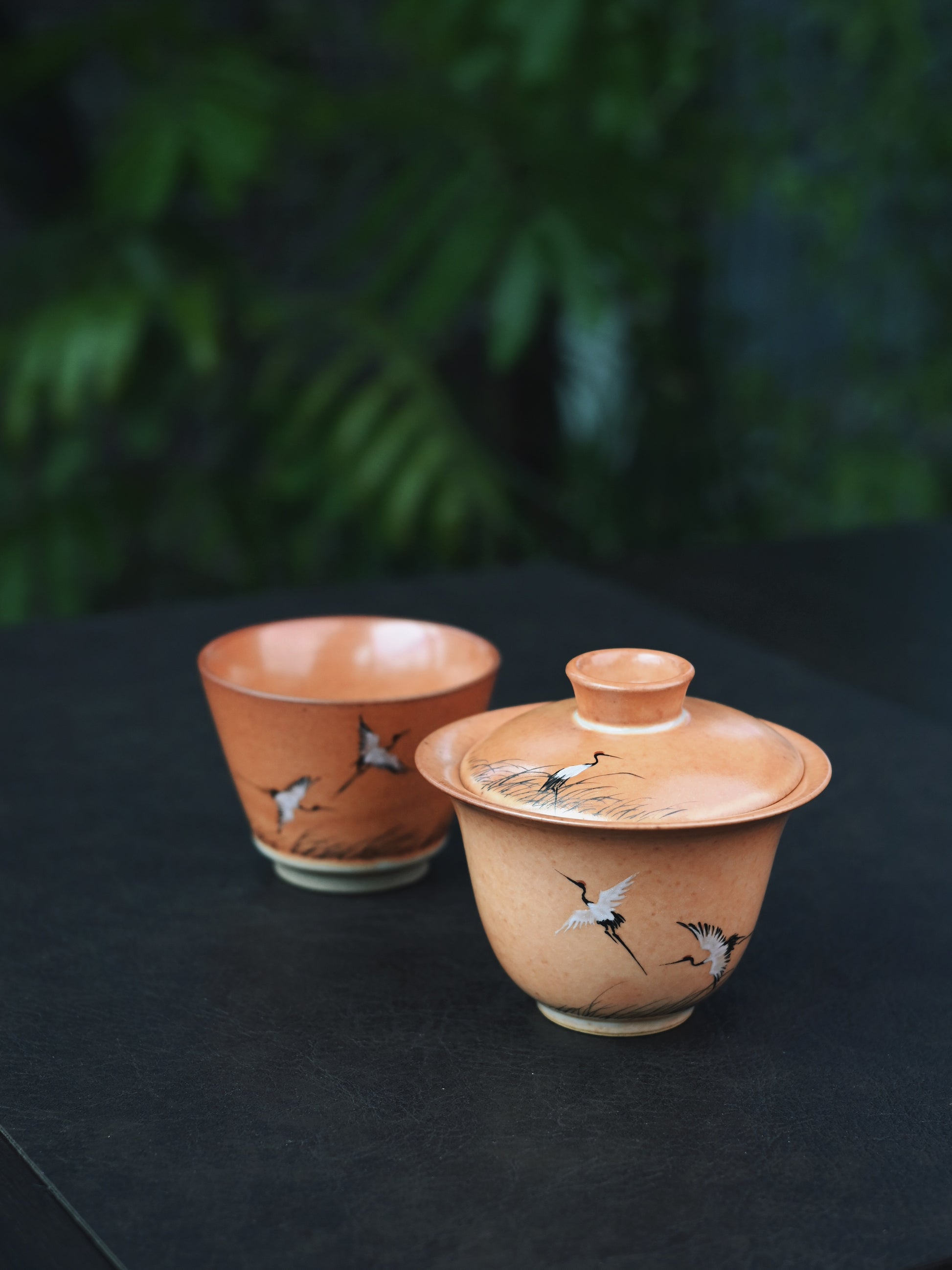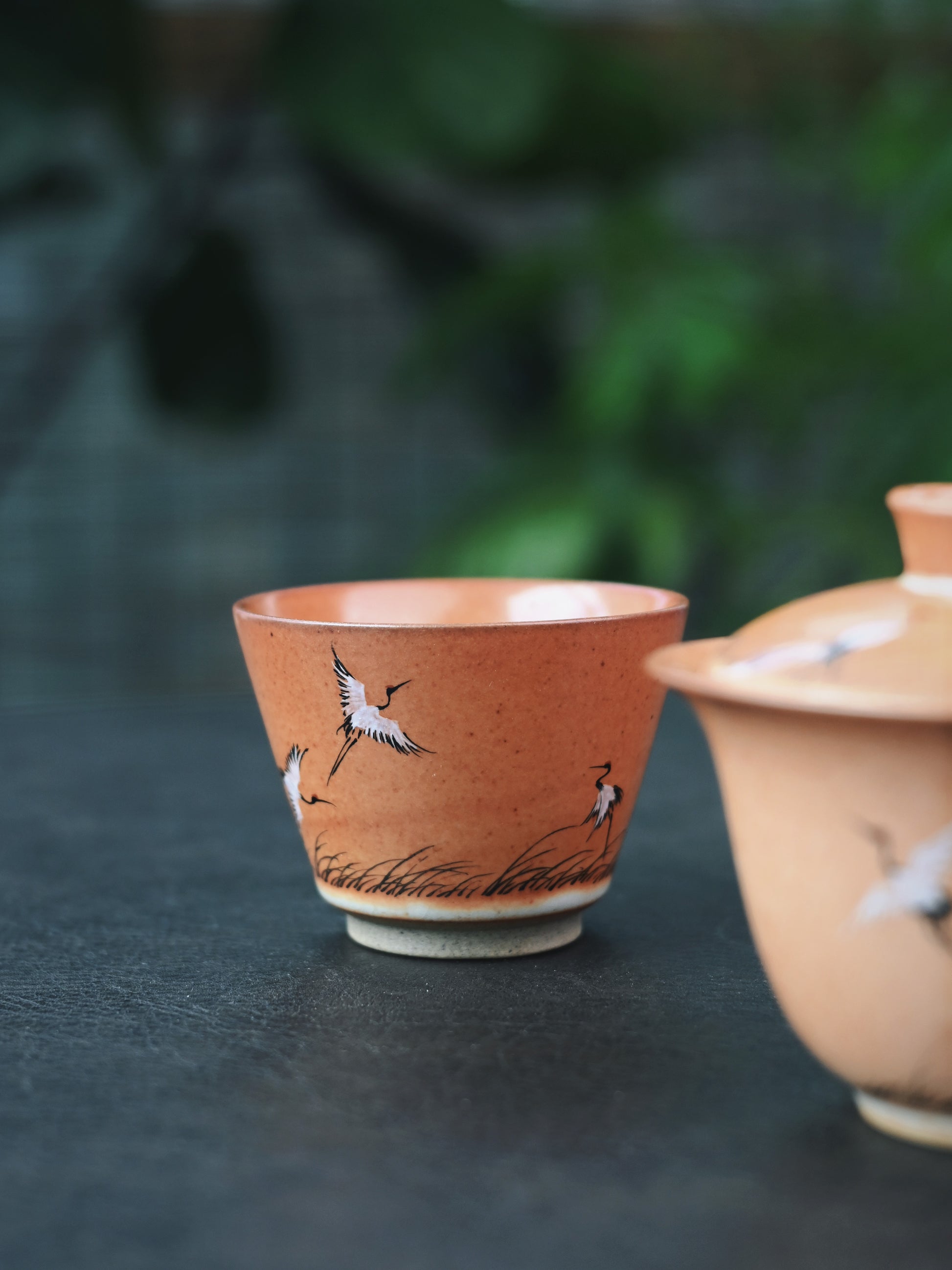Shino Ware Hand-Painted Crane Gaiwan Set
Shino Ware Hand-Painted Crane Gaiwan Set

Couldn't load pickup availability

Product Specifications
Gaiwan
Capacity: 110ML
Diameter: 9.3CM
Depth: 7.5CM
Material: Kaolin Clay
Food Safe: Yes
Packaging: Premium gift box
Teacup
Capacity: 90ML
Diameter: 7.5CM
Depth: 5.7CM
Material: Kaolin Clay
Food Safe: Yes
Packaging: Premium gift box
Cultural Crossroads
This exceptional set unites:
✓ Jingdezhen's Painting Mastery: Each red-crowned crane is hand-painted by ceramic artists.
✓ Authentic Shino Tradition:
-
Thick feldspathic glaze (3-5mm)
-
Natural "fire cloud" discoloration
-
Distinctive orange-peel texture
Set Features
1. Crane Gaiwan
-
Capacity: 110ml (ideal for 1-2 servings)
2. Matching Cup (1pcs)
-
90ml capacity

The Origin and Essence of Shino Ware
Shino ware traces its roots to the black-glazed porcelain techniques of China's Song Dynasty. Over four centuries ago, during Japan's Tenshō era (1573–1592), the tea master Shino Sōshin—a devoted practitioner of the Way of Tea—sent his potters to study ceramic arts in China. Upon their return, they began producing this distinctive pottery in a region called Shino, thus giving birth to what is now known as Shino-yaki.
Shino ceramics embody restraint rather than ostentation. In the history of Japanese pottery, they have long been revered as a spiritual art form deeply connected to Zen Buddhism. The glaze incorporates a high proportion of feldspar, applied thickly over a coarse, unrefined clay body. After firing, the surface emerges as luminous as heavy frost; when iron pigment is added, it bleeds into deep, poignant crimson.
Each Shino piece is hand-thrown from aged mineral clay, glazed, and fired at 1300°C. Variations in kiln temperature produce unpredictable color shifts in the glaze—even the master potter cannot fully anticipate the final result. The fired teaware contains abundant ferrous (Fe²⁺) and ferric (Fe³⁺) ions, which interact with the tannins and alkaloids in tea. This reaction dramatically softens the water, enhancing the sweetness and aftertaste of the brew while yielding a liquor that is both crystal-clear and velvety on the palate.
SGS Certification & Quality Assurance
SGS Certification & Quality Assurance
Our products has been tested by SGS, an internationally recognized third-party inspection and certification organization.
The testing confirms that the materials used meet applicable safety and quality standards for daily use, ensuring the product is suitable for contact with hot beverages.
For more details about our testing standards and certification process, please read our full article here:
👉 Learn more about our SGS certification
Shipping & Returns
Shipping & Returns
We want you to be completely satisfied with your Saanwu purchase. If for any reason you are not happy with your order, you may request a return or exchange within 14 days of delivery. If you have any questions, our customer service team is always happy to assist you. You can reach us via online chat or email.
Handling Time
In general case, please allow us to take up to 5 business days to prepare the package.
Shipping Methods
| Countries | Delivery Time (Business Days) | Orders Over 70 (USD) | Orders less than $70 (USD) |
| United States | 5-10 Days | Free | 9.99 USD |
| Japan | 3-5 Days | Free | 1,556 JPY |
| Canada | 5-9 Days | Free | 13.80 CAD |
| United Kingdom | 5-8 Days | Free | 7.50 GBP |
| Switzerland | 6-12 Days | Free | 7.99 CHF |
| Netherlands | 6-12 Days | Free | 8.50 EUR |
| Germany, Spain, France, Italy | 6-12 Days | Free | 8.50 EUR |
| Australia | 10-15 Days | Free | 15.15 AUD |
| Saudi Arabia | 8-12 Days | Free | SAR 37.50 |
Contact Us
Contact Us
🫖 Trade name: Saanwu
📞 Phone number: +86 13422886605
💬 WhatsApp: https://wa.me/saanwustudio
✉️ Email: service@saanwustudio.com
⏰ Business Hours: 8:00 AM – 12:00 AM
📍 Physical address: 1942 Broadway St STE 314C, Boulder, Colorado 80302, United States
